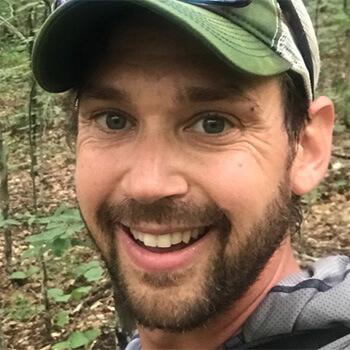- PhD, Natural Resources (wildlife biology), University of Vermont
- MSc, Wildlife and Fisheries Management, Montana State University
- BSc, Environmental Science; Wildlife and Fisheries Biology, University of Vermont
BIO
Elias is a wildlife ecologist interested in the intersection of wildlife populations and human activity to identify anthropogenic drivers of wildlife population dynamics. His research background is studying complex wildlife communities facing anthropogenic challenges and developing novel, non-invasive metrics to help study wildlife that are challenging to monitor. He is particularly interested in studying species and systems that are not well-understood to provide decision-makers with baseline data and inferences that inform management planning and future research.
Elias’ current research focuses on developing knowledge surrounding SARS-CoV2 transmission in wildlife communities and modeling potential pathways for future zoonotic transmission. This work will aid decision makers in evaluating means to mitigate the risk of SARS-CoV-2 establishing in wildlife communities and evolving new variants capable of infecting humans.
Publications
Area(s) of expertise
Wildlife abundance and occupancy, population and ecosystem modeling, population genetics, stress hormones, nutrition, disease ecology
Bio
Elias is a wildlife ecologist interested in the intersection of wildlife populations and human activity to identify anthropogenic drivers of wildlife population dynamics. His research background is studying complex wildlife communities facing anthropogenic challenges and developing novel, non-invasive metrics to help study wildlife that are challenging to monitor. He is particularly interested in studying species and systems that are not well-understood to provide decision-makers with baseline data and inferences that inform management planning and future research.
Elias’ current research focuses on developing knowledge surrounding SARS-CoV2 transmission in wildlife communities and modeling potential pathways for future zoonotic transmission. This work will aid decision makers in evaluating means to mitigate the risk of SARS-CoV-2 establishing in wildlife communities and evolving new variants capable of infecting humans.
Publications
Areas of Expertise
Wildlife abundance and occupancy, population and ecosystem modeling, population genetics, stress hormones, nutrition, disease ecology
